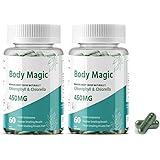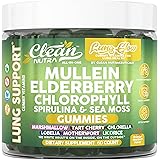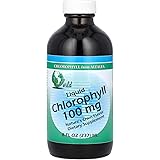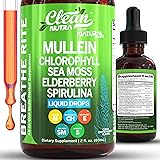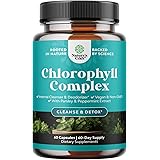The decision to stop drinking for 30 days can initiate a remarkable transformation within the body, as highlighted in the video above. This period of abstinence allows various physiological systems to reset and repair, offering a profound health reset.
Understanding these comprehensive benefits can provide significant motivation for anyone considering an alcohol-free month. A short-term challenge like this often leads to long-term positive changes, impacting everything from internal organ function to daily energy levels and emotional well-being.
Improved Liver Health: Repair and Regeneration
One of the most immediate and significant impacts of quitting alcohol for 30 days is observed in the liver. This vital organ is responsible for metabolizing alcohol, and regular consumption places it under considerable strain.
When alcohol intake ceases, the liver begins a crucial process of self-repair. Studies indicate that within a few weeks of abstinence, a notable decrease in liver fat can be observed, particularly in individuals with alcohol-related fatty liver disease. For example, research published in the journal Hepatology has shown significant reductions in liver stiffness and fat content within just four weeks of sobriety, dramatically improving liver function and mitigating the risk of more severe conditions like cirrhosis.
Better Hydration: Restoring Essential Balance
Alcohol is a known diuretic, meaning it promotes the excretion of fluids from the body, leading to dehydration. This effect impacts every cell and organ, often resulting in headaches, fatigue, and dull skin.
When alcohol is removed from the diet, the body’s hydration levels are naturally restored. This improved fluid balance is critical for optimal cellular function, supporting nutrient transport, waste removal, and maintaining healthy skin elasticity. Individuals frequently report clearer skin and a reduction in dryness as hydration levels improve after thirty days without alcohol.
Enhanced Sleep Quality: Deeper, More Restorative Rest
Many people might associate alcohol with falling asleep faster, but it significantly disrupts sleep architecture. Alcohol suppresses REM sleep, the most restorative stage of sleep, and can lead to fragmented sleep patterns.
Abstaining from alcohol for a month allows the brain to re-establish natural sleep cycles, leading to deeper and more restorative sleep. Individuals typically experience increased energy levels, improved mood, and better cognitive function as their sleep quality enhances. Data from various sleep studies consistently shows that alcohol consumption negatively impacts sleep efficiency and latency, effects that reverse with sobriety.
Weight Loss: Reducing Empty Calories
Alcoholic beverages are often laden with ’empty calories’ that provide little to no nutritional value. These calories can quickly accumulate, contributing to weight gain without satiety.
By cutting out alcohol, a substantial number of these discretionary calories are eliminated from one’s diet. This reduction in caloric intake, especially when combined with healthier eating habits and regular physical activity, frequently results in noticeable weight loss over 30 days. For instance, a single beer can contain upwards of 150 calories, while a glass of wine may have 120, making the cumulative calorie savings substantial over a month.
Improved Mental Health: Clarity and Balance
While alcohol may initially seem to alleviate stress or anxiety, it is a central nervous system depressant that can exacerbate mental health issues in the long run. Chronic alcohol use alters brain chemistry, affecting neurotransmitters like serotonin and dopamine.
When individuals stop drinking for 30 days, symptoms of depression and anxiety are often reduced. The brain’s chemistry can begin to rebalance, leading to improved mood stability, enhanced mental clarity, and a greater sense of well-being. A 2019 study published in the British Medical Journal linked reduced alcohol consumption to improvements in general mental well-being and reduced psychological distress.
Better Digestion: Soothing the Gut
Alcohol can irritate the entire digestive system, from the esophagus to the intestines. It can disrupt the gut microbiome, impair nutrient absorption, and trigger issues like acid reflux and indigestion.
Quitting alcohol allows the digestive system to heal and rebalance. This can lead to a significant reduction in symptoms such as heartburn and bloating, fostering a healthier gut environment and improving the absorption of essential nutrients. A robust gut microbiome is increasingly recognized for its role in overall health, and alcohol abstinence supports its diversity and function.
Enhanced Immune Function: Strengthening Defenses
Regular alcohol consumption is known to suppress the immune system, making the body more vulnerable to infections and illnesses. It can impair the function of white blood cells, which are crucial for fighting off pathogens.
Over 30 days without alcohol, immune function is typically enhanced. The body’s natural defense mechanisms are strengthened, leading to a reduced susceptibility to common colds, flu, and other infections. This improved immune response is a vital benefit for overall health and resilience.
Lower Blood Pressure: Reducing Cardiovascular Risk
Consistent alcohol consumption can contribute to elevated blood pressure, a significant risk factor for heart disease and stroke. The exact mechanisms are complex but involve effects on blood vessel constriction and hormonal regulation.
Abstaining from alcohol for a month has been shown to help lower blood pressure levels for many individuals. This reduction in hypertension is a key step in decreasing the risk of serious cardiovascular events. Research indicates that even moderate alcohol intake can increase blood pressure, underscoring the benefits of sobriety.
Reduced Risk of Cancer: A Proactive Step
Alcohol is classified as a Group 1 carcinogen by the World Health Organization, directly linked to an increased risk of several types of cancer. These include cancers of the mouth, throat, esophagus, liver, breast, and colorectal cancer.
By stopping alcohol consumption, individuals actively lower their risk of developing these alcohol-related cancers. This health benefit is cumulative, meaning that any reduction in alcohol intake, particularly a sustained period of abstinence, contributes positively to long-term cancer prevention. The link between alcohol and cancer risk is supported by extensive epidemiological data.
Improved Skin Appearance: A Radiant Glow
As a dehydrating agent, alcohol strips the skin of moisture, contributing to dryness, dullness, and accelerating signs of premature aging. It can also exacerbate skin conditions like rosacea and psoriasis.
Without alcohol, the body rehydrates, and the skin often becomes more supple and radiant. Fine lines may appear less pronounced, and the overall complexion tends to improve, reflecting better internal health and hydration. Many people notice a healthier glow and reduced puffiness in their face after just a few weeks of being alcohol-free.
Better Heart Health: Supporting Cardiovascular System
Beyond blood pressure, alcohol can negatively impact heart health in several ways, including contributing to irregular heart rhythms (arrhythmias) and weakening the heart muscle (cardiomyopathy). It can also influence cholesterol levels and increase inflammation.
Quitting alcohol for 30 days can contribute to improved heart health. This includes the potential for lower cholesterol levels, a reduction in systemic inflammation, and better overall heart function. These positive changes reduce the long-term risk of various cardiac conditions.
Financial Savings: Reinvesting in Well-being
The cost of alcoholic beverages, particularly when consumed regularly, can accumulate significantly over time. This financial outlay is often overlooked in personal budgets.
Choosing to stop drinking for 30 days frequently results in substantial financial savings. This newly available money can then be redirected towards healthier activities, personal investments, or saved for future goals, providing a tangible benefit to one’s financial well-being. Estimates suggest that even a moderate drinker could save hundreds of dollars in a single month.
Increased Productivity: Enhanced Focus and Energy
The cumulative effects of improved sleep, enhanced mental clarity, and greater overall energy, which stem from an alcohol-free lifestyle, converge to boost productivity. Alcohol’s impact on cognitive function, even in moderate amounts, can linger into the next day.
Individuals who abstain from alcohol for a month often report feeling more focused, alert, and capable of tackling tasks at work and in their daily lives. This increased efficiency and mental sharpness can lead to better performance and a greater sense of accomplishment.
Enhanced Relationships: Deeper Connections
Alcohol can sometimes be a barrier to genuine connection and effective communication, leading to misunderstandings or conflicts. Its influence on judgment and emotional regulation can strain personal relationships.
Abstaining from alcohol can lead to improved relationships with family, friends, and partners. With clearer communication, fewer alcohol-induced conflicts, and a greater presence in social interactions, individuals often experience more meaningful and healthier connections. This improved relational dynamic is a significant, often unexpected, benefit when one decides to stop drinking for 30 days.



